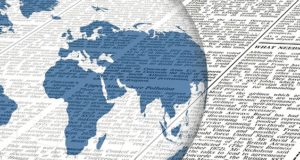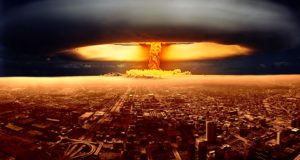During two days, French and Russian academics and experts met in the framework of the EU-Russia 2015 seminar on the topic « What can be the contribution of Franco-Russian relations to EU-Russia strategic partnership and the holding of a BRIC-EU meeting by 2015? » jointly organised by the Laboratoire Européen d’Anticipation Politique (LEAP), the Institute of European Studies of Moscow’s State Institute of International Relations (MGIMO) and the University of Nice/Sophia-Antipolis, in partnership with the Europe 2020 network, the Peoples’ Friendship University of Russia and the network of Jean Monnet Chairs
The seminar focused primarily on three key strategic fields:
1. How to contribute to build a new and sustainable economic and financial global order?
2. How to initiate 21st-century Europe security architecture and launch common leads in the field of global security?
3. How to invent a global governance matching 21st-century needs: what could be the agenda of an EU-BRIC summit?
The following aspects of the international situation justified the meeting:
The world is still going through a historic crisis putting an end to the specific systems and power relations which prevailed worldwide since the end of the second world war. The dynamics at play in the processes of accelerated globalization and unbridled market expansion in the past twenty years have just collapsed. In every field (finance, economy, currency, strategy, diplomacy…), international relations are subject to unprecedented rebalancing. This being said, as in any crisis, the current global systemic crisis also represents a positive change for some global players such as China, Russia, Brazil or India, for instance.
The new global context places the EU-Russia partnership in an entirely new perspective. Whether for a peaceful management of the tensions that will inevitably emerge between two geopolitical entities of this magnitude or for their contribution to rebuild a system of global governance in line with 21st requirements, the European Union and Russia are aware that they are two of the central players expected, not only by their own populations but by many other regions of the world, to reinstate elements of stabilization in the current global chaos which became so obvious since the failure of the Summit on global warming. Given the new global context, and in continuation with the work achieved in the previous three GlobalEurope EU-Russia seminars (Warsaw 2004, Moscow 2005 and Moscow 2008), this fourth seminar, organized in the framework of the France-Russia year, aimed at identifying the guidelines of what could be the contributions of Franco-Russian bilateral relations to two components of the future global balance: EU-Russia Strategic Partnership and Europe’s participation to an upcoming BRIC summit.
The following recommendations, formulated by the organizers on the basis of the excellent contributions and debates that took place during the meeting, are meant as decision support tools for the intention of French, European and Russian policy-makers with a view to help them taking these perspectives into account in their strategic choices. The increasing scope and speed of the current global crisis imposes to be innovating when it comes to major diplomatic orientations.
Russia and Euroland: Two renewed players at the heart of the global systemic crisis
In the context provided by the global systemic crisis, it has become essential to try and find new global equilibriums reaching beyond past bilateral relations. Thus each day, for the leaders of the major powers, the central question becomes less the positioning relative to the United States (the dominant theme in recent decades) than the ability to defend its own interests and contribute to shape the world after the crisis. In this game of historic transition, the participants agreed on the idea that, between 2011 and 2014, two very particular players are preparing to play crucial roles at the heart of this transition which must succeed in order not to open the door to a decade of world conflict: Russia and Euroland (emerging entity bringing together countries sharing the Euro, taking on increasing importance at the EU core since the beginning of the global systemic crisis, and which especially brings together all the founding countries of the European Community project).
Russia can be seen as the first global player to have completed the transformation from a world power constituted after 1945, which it was, to a power in the world after the global systemic crisis that we are currently experiencing [1] and which is closing the fate of the previous system. This unique characteristic is probably the reason why it is the first “on deck”, as seen with the BRIC countries, to try and influence the organization of the world after the crisis.
As for Euroland, it’s an effective player, directly rooted in the desire to exit the world order created after 1945. Indeed Euroland has allowed the founders of the European community project to regain the initiative in European activities after two decades of stagnation under American-British control, and reconnect with the community project’s original idea of liberating Europeans from the tutelage of two foreign powers – the United States and the USSR. Far from being an alternative to the EU, Euroland is in fact the mould of an EU able to act proactively on an international level, “currency oblige”. This new player is in the course of asserting itself before our eyes on the basis of its monetary identity and which, de facto, increasingly guides decisions throughout the EU knowing that most EU countries are intent on joining Euroland.
Therefore, both, Russia and Euroland are part of what we might call the first global players “renewed” by the crisis. And under the growing pressure of the global crisis, these two players are now discovering that they share a capacity to set a common international agenda, namely the identification of key issues and challenges and the willingness to take action to confront them. As a matter of fact Euroland has every interest in strengthening partnerships with players which, like Russia, can contribute to lower the fragility of the single currency.
The Russian participants in particular wished to insist on the fact that, beyond the agenda, even in the approach, Russia and Euroland will find themselves followers of the same operational pattern, namely the activation of networks that can effectively bring together like-minded players whilst avoiding the creation of hierarchical relationships; and operational pattern which everyone agreed to find especially suited to a world in transition where power relationships will become very fluid.
Overcoming prejudices to build a modern and sustainable Euro-Russian relationship
Most difficult in a period of transition is to extract oneself from the world which is disappearing and its already moribund ideas. If they want to be weighing significantly on global orientations by the middle of the coming decade, Russians and Eurolanders, these two « renewed » players, have two years in order to take up one major challenge: to recognize each other for what they are.
From the European side, it is a matter of understanding that Russia is not the USSR and the current Russian leadership, though inherent to the twenty-first century, should be seen as their predecessors of before 1917, that’s to say partners structuring a Eurasian continental balance, with a capacity for global action, but without an ideological vision of the objectives and methods (contrary to the USSR). From the Russian side, it is necessary to “decipher” the complex progression of the European side recognizing that between the often slow and disappointing European Union in its search for a strategic partnership and the traditional bilateral attraction of France, Germany and Italy who, though Moscow claims them as its EU partners of preference, cannot play the role of strategic engines at global level, there is now another level of strategic action, i.e. Euroland, a country still emerging but already very really tangible because Moscow, Beijing and the rest of the world hold its currency in billions in their foreign exchange reserves. Clearly, Russia’s European partner is completely different in its nature, structure and concerns from what it was in 2005/2006, for example, at the time of first EU-Russia GlobalEurope seminars.
This mutual recognition is, therefore, a real emergency that requires the proliferation of articles, reports and meetings, such as this one, on this topic. In this regard, the participants were eager to remind that the abolition of visas between EU and Russia is becoming a requirement to facilitate human and intellectual mobility between the two players and increase the ability to forge joint initiatives (in the scientific, technical, industrial, commercial and cultural fields).
Russia-Euroland : A self-imposing strategic partnership
Little by little, despite institutional vagaries in this field, reality is leading the two players to de facto begin their strategic partnership. Thus, during the “Euro crisis” of Spring 2010 set to music by the City of London in particular, Moscow came to the rescue of the single European currency (as did Beijing for that matter) by recalling Russia’s confidence in Euroland and never ceasing its diversification out of the US dollar in favor of the Euro. Meanwhile France, Germany and Italy (the Euro heavyweights) have directly contributed to the rapid resumption of normal relations between Europeans and Russians after the Georgia crisis, while asserting their opposition to NATO’s objectives of future extensions to the East. On this point, if Washington seems surprised to discover that the question of European security now seems to concern Moscow more than Washington for an increasing number of Europeans, a simple re-reading of history schoolbooks would reveal that Washington’s disproportionate role in the affair is an historical interlude which is coming to an end, like many other things as well, at the time of this global crisis of historic proportions.
With NATO in complete disarray (defeat in Afghanistan in 2011 and major budget cuts now and to come), the issue of European defense will become increasingly similar to that of the security of the European continent, and for this reason take place by way of close cooperation between Russians and Europeans which can give birth to a treaty on European security between now and 2014. Euro-Russian cooperation in the fight against piracy already provides a good model of the potential for such a partnership in the fight against terrorism, wished to highlight participants.
But beyond the “traditional” Euro-Russian agenda (neighbourhood, defense, energy, science / technology cooperation, investments), the global systemic crisis increasingly imposes on the two global players – Russia and Euroland, a common agenda and timetable to facilitate a peaceful transformation of global governance. For these two “renewed” powers, it’s going to be a question of their own strategic interests in the short and medium term as well as their respective abilities to influence the world’s long term progress.
Russia-Euroland: Avoiding the emerging of a world of conflicting blocs
Due to their respective historical experiences, the two regions share the aspiration for a balanced multi-polar world. Consequently do not want a Chinese hegemony to-be to replace the US hegemony which is breaking up. They want a reorganization of the global monetary system to prevent currency wars as well as the structural instability of the current system of floating exchange rates. Taking note of the lessons taught by the current monetary system, they do not want one national/regional currency to replace the US Dollar as standard-currency of the next international system. They are in favor of a deep restructuring of the governance of major international institutions (UN Security Council, IMF, World Bank …). Euroland is by nature adept at international relations operating in a network, without hierarchical powers; Russia has recently become adept at the same operational rationale as shown by its advocacy for BRIC country structuring.
Indeed, contrary to the dominant discourse in the European or US media, the participants wished to remind that the BRIC countries are more than a vague concept formulated by a Wall Street banker. In fact, since 2006 (the year of the first BRIC ministerial meeting) at the initiative of Vladimir Putin, Russia has been very proactive in bringing relations between these four powers (Brazil, Russia, India and China) to fruition. This has allowed the creation of cooperation mechanisms between the four countries on most major global issues including regular foreign ministers and finance ministers’ meetings (this BRIC network encourages, by example, the steady progress of trade in national currencies amongst the four countries to the detriment of the US dollar), monthly consultations of ambassadors to the United Nations, coordination of G20 positions and summits at Head of State level (Yekaterinburg in June 2009, Sao Paulo in April 2010). As Dmitry Medvedev recalled recently, for Moscow the BRIC network has officially become the second priority of foreign policy after the partnership with the EU. By simultaneously implementing this pro-BRIC and pro-Euro diplomacy, Russia appears as one of the great champions of a post-crisis world that is not composed of blocs in various conflicts with each other.
And this is also an aspect that joins Euroland’s basic objectives (like the EU’s): to avoid a world of conflicting blocs that would lead straight to the worst post-crisis scenario. Meanwhile, every quarter that goes by forces Euroland leaders to note that China, India, Russia and Brazil are key partners over almost all


 LEAP2040 Toutes les informations et archives Europe2040
LEAP2040 Toutes les informations et archives Europe2040


